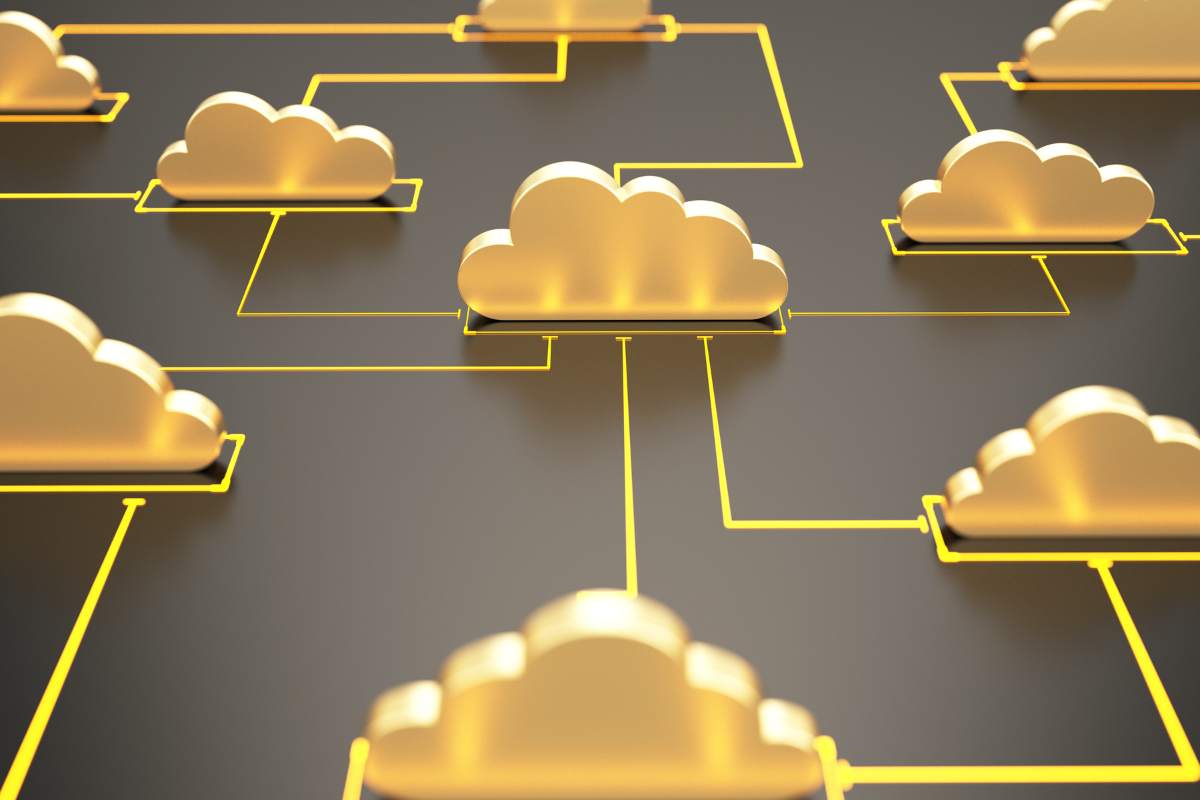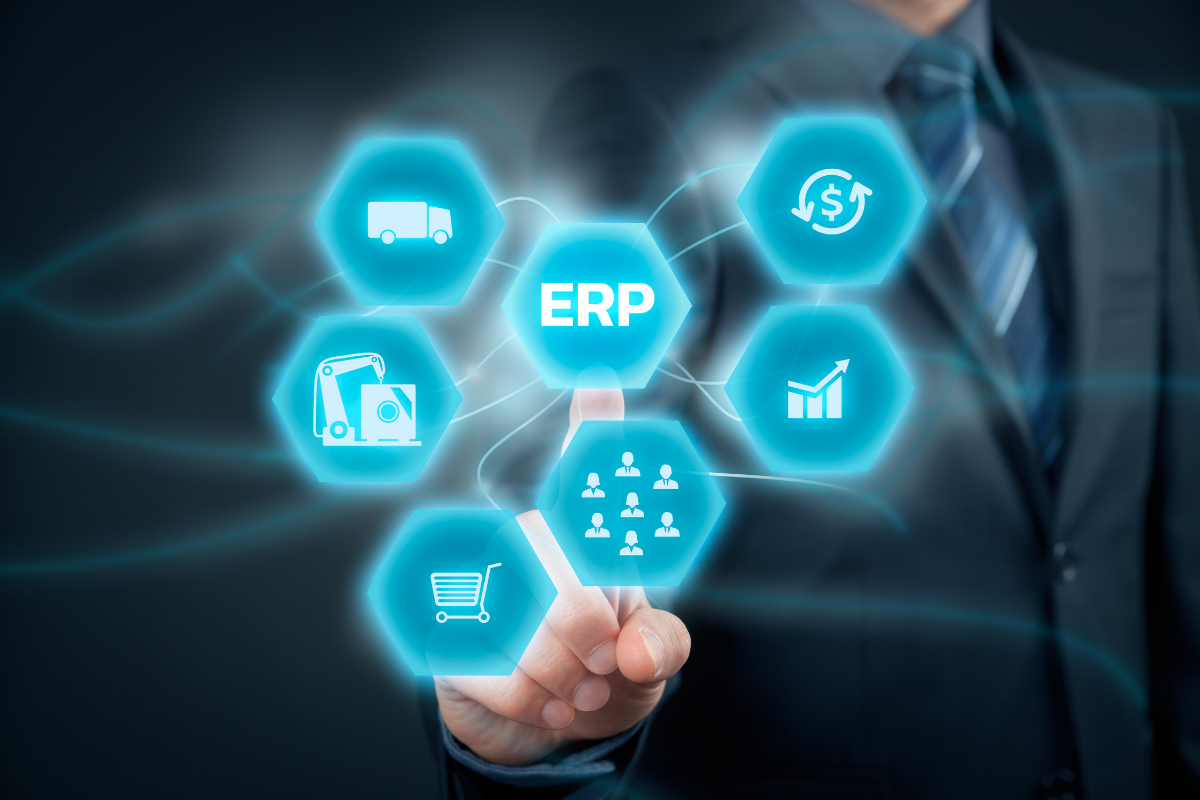Every year, Epicor surveys thousands of global leaders in the manufacturing, distribution, automotive, building supply, and retail industries, about the key factors that contribute to their business growth, the potential barriers they face, and what they expect from their ERP providers.
In the 2023 research, Epicor focused on the journey to cloud ERP and what businesses experience at every stage of technology adoption: from contacting an ERP provider to evaluating a solution, then to onboarding, go-live, and ongoing support.
Here we have gathered some key findings from the study:
87% of enterprises use a hybrid ERP solution and almost half are completely or mostly on the cloud.
The use of hybrid ERP solutions has become more common among enterprises, with 96% utilizing at least some cloud ERP solutions and 46% of them primarily or entirely on the cloud. Deployment preferences between small and medium-sized businesses (SMBs) and enterprises are now similar, with almost 90% of enterprises opting for hybrid ERP solutions. Despite this, SMBs are not far behind, with 81% preferring a hybrid deployment. Enterprises tend to have a higher preference for hybrid environments than SMBs as they are more familiar and comfortable with cloud environments.
At least 90% of today’s businesses are loyal to their ERP providers.
Enterprise businesses express high levels of loyalty, with 95% of respondents reporting allegiance to their current ERP provider. SMBs share a similar sentiment, with 90% reporting loyalty. However, those using on-premises solutions or a mix of on-premises and cloud-based ERP are more open to considering alternative providers or solutions. Enterprises tend to seek partners that offer greater control over their ERP solution, while SMBs prioritize cloud security and education. Cybersecurity concerns are the main trigger for businesses to reconsider their ERP solution. Business leaders always look for better functionality and more value, which motivates them to monitor competitors of their current ERP provider.
Enterprises are confident in their ability to make ERP purchase decisions, but they place great value on strong partnerships with their ERP providers during implementation, go-live, and beyond.
Customer confidence in navigating the ERP purchase journey is high, with 99% of enterprise decision-makers expressing confidence and 96% for SMBs. Business leaders, regardless of industry or deployment type, are positive about their purchase experience, including those that choose on-premises deployment. Enterprises have more confidence in their ability to navigate the cloud journey themselves. ERP customers value partnerships, with 97% viewing their ERP provider as a partner throughout the entire journey, regardless of deployment type.
After purchasing an ERP solution, business leaders desire a strong partnership and increased support from their providers.
During the implementation and go-live phases of an ERP system, businesses seek additional support and partnership, especially SMBs who may not have the budget for consultants. Consultants are relied on by both enterprises and SMBs when choosing an ERP solution, but poor communication with consultants can be a barrier to forming strong partnerships. Business leaders need full support and frequent contact with core team members during these phases to ensure consistent communication and individualized training. Overall, effective communication and transparency are crucial for forming strong partnerships with ERP providers.
Cloud Security Is a Key Concern
Business leaders are increasingly prioritizing cybersecurity as a reason to switch to a new ERP provider. As cyberattacks become more sophisticated and prevalent, organizations require resilient systems to safeguard their data and ensure business continuity. ERP solutions can mitigate these threats and provide a 360-degree view of data across the enterprise. Furthermore, modern ERP solutions can recover from system failures automatically, minimizing downtime and allowing employees to focus on business optimization. While businesses seek ERP solutions that provide richer functionality and better value, security consistently ranks as a top concern, especially for hybrid and cloud deployments.
When considering a cloud ERP purchase, 32% of businesses consider security as the most important area to address. At the same time, they prioritize interoperability, long-term viability, architecture, and business-specific features when considering a cloud ERP purchase. Cybersecurity is crucial for distribution, manufacturing, and retail, while global coverage is a priority for automotive and building supply industries.
95% of businesses are overall comfortable with cloud-based business solutions, but over 50% would like better information on cloud security before transitioning.
Businesses also want help with data backups, migration support, and more product demos before feeling comfortable with a new cloud ERP solution. Enterprise leaders are slightly more at ease with cloud adoption, and businesses seek to address business continuity when migrating to the cloud. They also want their ERP provider to mitigate risk and provide a smooth transition. Corporate acquisition initiatives are counting on cloud ERP partners to minimize disruption.
The top challenges linked to moving ERP solutions to the cloud are related to issues around security and business disruption.
Enterprises considering cloud adoption face various concerns, such as data quality, security, pricing, implementation time, and customization. No one issue stands out as a dominant obstacle, and large businesses seek ERP solutions that offer control and flexibility for unique industry business flows. Although enterprises have more resources than SMBs, both types of organizations look to partner with an ERP provider that can help resolve challenges. Many businesses accept ERP solutions without customizations and then struggle to address gaps on their own, relying on their ERP provider to make things right. While almost half of enterprise decision-makers seek ERP support, three in 10 believe they could address migration barriers internally.
99% of enterprises say greater transparency would increase their confidence in the ERP journey.
IT decision-makers seek transparency throughout the ERP journey, especially during the evaluation, configuration, and implementation phases. Cloud security transparency is crucial for cloud adoption. Enterprises want pricing, security, data migration, release cadence, and feature transparency. Businesses require ERP providers to be transparent about the journey’s disruption. Support is essential for success, varying by ERP journey stages. Onboarding and implementation phases prioritize training, super user practice, data migration/testing help, best practices education, and on-site consultant support. After going live, internal technical support, training, and online help are critical. Growing enterprises require more support and education to expand their ERP footprint.
Last but not least, the research highlighted that customers seek a partnership with an ERP provider that delivers success across the entire journey.
Top 5 Customer Wish List for the Journey to Cloud
- Consistent contact with a core support team throughout the entire journey, from purchase to go-live and beyond.
- Robust cloud security, with assurance around data security, protection against data loss, and disaster planning.
- Enhanced functionality, with enterprise businesses valuing features that provide them with greater control over their ERP solution and SMBs being most concerned about security features.
- Increased support during the planning, implementation, and go-live phases, with enterprises seeking additional guidance to address security concerns.
- Greater transparency, particularly around pricing plans and cloud migration security issues, during the evaluation, planning, and implementation phases.
Epicor, the leader in industry productivity solutions for medium-sized businesses, delivers a comprehensive set of global functionality – enabling businesses to move their industry productivity solution to the cloud, with an expert partner like Athens Technology Center to support them every step of the way. Contact us to learn more about how Epicor Kinetic, a visionary blend of agile technology and global functionality, can help you optimize your performance, whether you operate on a local, regional, or global scale.





